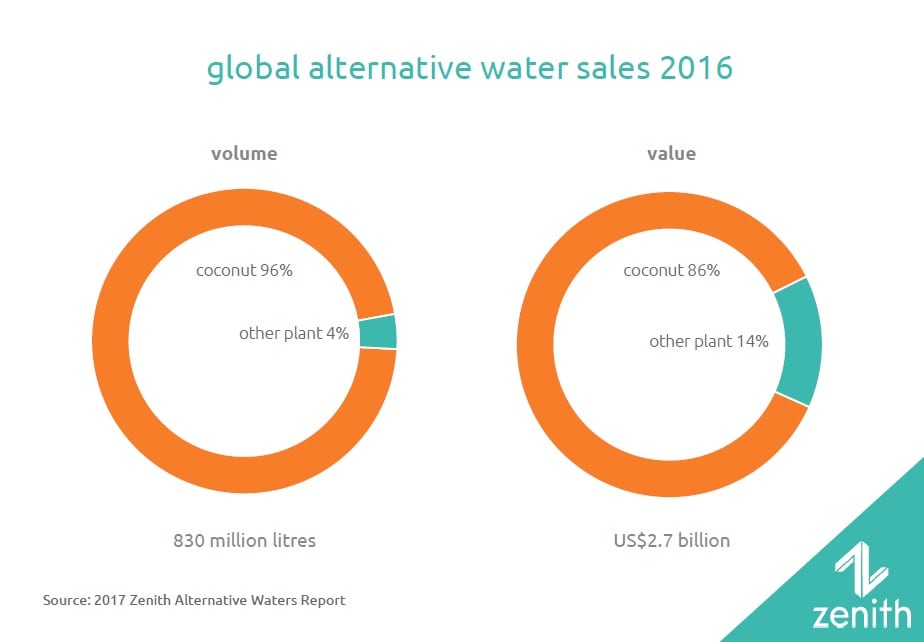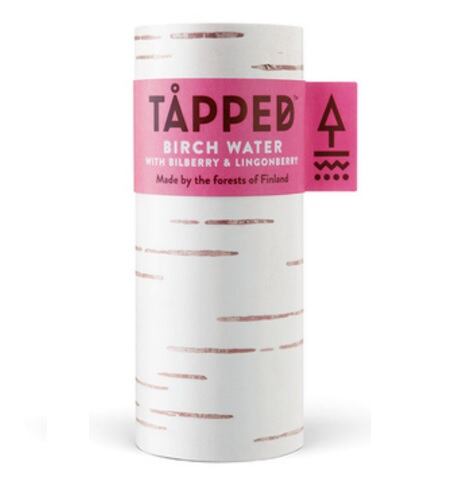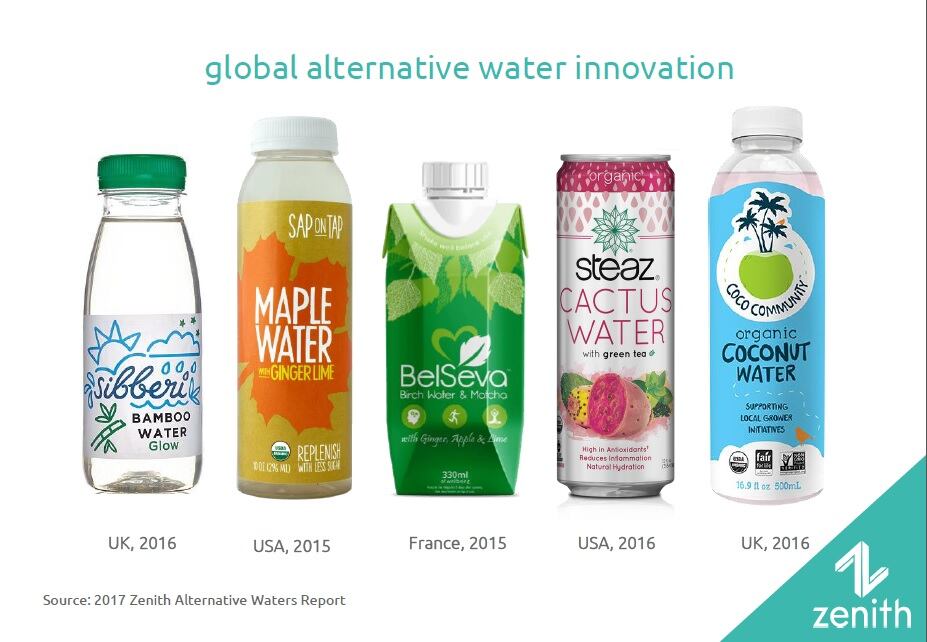By 2020, the market will have doubled in size to reach $5.4bn, according to food and drink consultancy Zenith Global, in its 2017 Global Alternative Waters report. In volume terms this will approach 1,900m liters.
The majority of value comes from North and South America, with coconut and maple water sales performing strongly in these markets.
Consumers are seeking alternatives to sugar sweetened beverages and looking for healthy hydration options, driving the uptake of plant waters, says Zenith.
From coconut to cactus
Alternative waters, or plant waters, are categorized by Zenith as those that are extracted directly from the plant. Coconut, maple and birch waters are the main contenders in the market, with coconut water taking the lion's share.
However, other plant waters such as cactus, bamboo, artichoke, barley, olive, ginger, rose and banana waters can all be seem on the market, as well as other fruit and vegetable waters. While these waters only currently represent a marginal share of total sales, they are predicted to more than double in size by 2020.

Coconut water continues to dominate the alternative waters market, making up 96% of volume and 86% of value in 2016.
While the market for other plant-based waters is characterised by small and local players, multinational players have a strong foothold in the coconut water market.
The segment now has three major global leads: The Coca-Cola Company with its Zico and Innocent brands; PepsiCo with One, Kero Coco and Naked; and All Market with Vita Coco.
Coca-Cola & PepsiCo
Zico: Coca-Cola acquired Zico Beverages in 2013, having invested in the brand since 2009. Zico was founded in 2004 by Mark Rampolla after encountering coconut water in Central America. Zico promotes coconut water as a good lifestyle choice, with 5 electrolytes, as much potassium as a banana, and naturally gluten, fat & cholesterol free.
Kero Coco: PepsiCo acquired Amacoco (which launched Kero Coco in Brazil in 1995) in 2009. Kero Coco expanded to Singapore, the Philippines & Brunei in 2015, and is available in McDonalds, Pizza Hut, supermarkets & online.
Meanwhile, the coconut water market in Asia Pacific and South America is dominated by unpackaged coconut water consumption. Therefore, the markets offer particular opportunity for packaged coconut water to grow, says Zenith.
In fact, Asia Pacific and South America are expected to be the fastest growing markets for coconut water.
While accounting for a considerably smaller share of the market, other plant-based waters are also growing, said Portia Rifat, senior market analyst, Zenith.
“The maple water segment is projected to triple in size to 2020,” she said.
“North America offers the greatest potential for innovation in natural flavors and organic sourcing. The best prospects for birch water are in West Europe.”
Increasing sales in both the mainstream and premium markets will help drive the growth in plant waters, continued Rifat.
Opportunities for brands can be found by providing waters with positioning such as premium, organic, craft and ‘not from concentrate’.
Launches and innovations: A snapshot

Steaz Cactus Water: The US brand launched a beverage that blends cactus water with RTD tea last year.
Tapped Birch Water: Tapped from Finnish forests, the UK drink is organic, not from concentrate, and without added sugar or sweeteners.
Sibberi Tree Water: the UK birch water brand expanded into maple water and bamboo water last year. It promotes its tree waters as having 4 times less sugar as coconut water - 'like a diet coconut water'.
Coconut Beach: This California brand wants to break down the perception that coconut water is expensive, with all products retailing at 99c.

